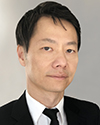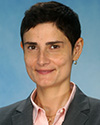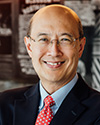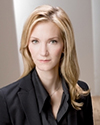The amount of passively invested funds has reached levels at which it has a measurable detrimental effect on market efficiency.
Responses
Responses weighted by each expert's confidence
| Participant | University | Vote | Confidence | Bio/Vote History |
|---|---|---|---|---|
 John Campbell |
Harvard | Bio/Vote History | ||
|
If passive investing grows at the expense of loss-making active investing, it reduces the profits available to active investors with private information but this does not necessarily make stock prices less efficient.
-see background information here |
||||
 John Cochrane |
Hoover Institution Stanford | Bio/Vote History | ||
|
Index funds largely expand investing to a population that didn't hold stocks. Hedge funds have expanded. Not much evidence that there is less overall informed money, or that markets have become less efficient over time.
|
||||
 Francesca Cornelli |
Northwestern Kellogg | Did Not Answer | Bio/Vote History | |
|
|
||||
 Douglas Diamond |
Chicago Booth | Bio/Vote History | ||
|
I expect that the effect of amount of passive investing is self limiting by the effect on the profits from skilled active investing. These profits would increase as more investing became passive.
|
||||
 Darrell Duffie |
Stanford | Bio/Vote History | ||
|
We are now relying now on fewer investors to bear firm-specific supply shocks and to do research. Consider for instance the impact of index deletions and additions. Still early, though, to ring the emergency alarm bells. The market may adjust and adapt over time on its own.
|
||||
 Janice Eberly |
Northwestern Kellogg | Bio/Vote History | ||
|
|
||||
 Xavier Gabaix |
Harvard | Bio/Vote History | ||
|
If now-passive investors were investing more actively, it's not clear that they would value stocks very rationally.
|
||||
 Itay Goldstein |
UPenn Wharton | Bio/Vote History | ||
|
|
||||
 John Graham |
Duke Fuqua | Bio/Vote History | ||
|
|
||||
 Campbell R. Harvey |
Duke Fuqua | Bio/Vote History | ||
|
Researchers have looked at the impact on individual stocks when included in ETFs (passive). Evidence suggests that after inclusion volatility increases and there is also negative autocorrelation (JF 2018-link). These findings are consistent with a negative impact on efficiency.
-see background information here |
||||
 David Hirshleifer |
USC | Bio/Vote History | ||
|
What fraction of funds are invested passively is endogenous.
|
||||
 Harrison Hong |
Columbia | Bio/Vote History | ||
|
Optimal fraction of passive versus active from a welfare perspective depends on a number of parameters which are difficult to measure.
|
||||
 Wei Jiang |
Emory Goizueta | Bio/Vote History | ||
|
|
||||
 Steven Kaplan |
Chicago Booth | Bio/Vote History | ||
|
|
||||
 Anil Kashyap |
Chicago Booth | Bio/Vote History | ||
|
|
||||
 Ralph Koijen |
Chicago Booth | Bio/Vote History | ||
|
The evidence so far seems mixed, see (and the references therein)
-see background information here |
||||
 Camelia Kuhnen |
UNC Kenan-Flagler | Bio/Vote History | ||
|
|
||||
 Andrew Lo |
MIT Sloan | Did Not Answer | Bio/Vote History | |
|
|
||||
 Michelle Lowry |
Drexel LeBow | Bio/Vote History | ||
|
The growth in indexing would have a detrimental effect on the market if nothing else simultaneously changed. However, we expect activist investors to 'fill the gap' in information production - to take advantage of inefficiencies.
-see background information here |
||||
 Sydney Ludvigson |
NYU | Bio/Vote History | ||
|
In some models, passive investing might make financial market returns more volatile, depending on parameters. Efficiency is a different issue, since even a small number of active traders might be enough for prices to reveal "all relevant information".
|
||||
 Matteo Maggiori |
Stanford GSB | Bio/Vote History | ||
|
|
||||
 Gregor Matvos |
Northwestern Kellogg | Bio/Vote History | ||
|
|
||||
 Tobias Moskowitz |
Yale School of Management | Bio/Vote History | ||
|
While the level of passive investment has gone up substantially over time, it is still at a very low level that likely has no discernable impact on market efficiency. I doubt any impact is discernable in the data and indeed there may be no effect.
|
||||
 Stefan Nagel |
Chicago Booth | Bio/Vote History | ||
|
The smoking gun of reduced efficiency would be greater aggregate gross outperformance of active managers. No sign of this so far. Trend towards passive did not only take capital away from skilled active managers, but also from noise-trading active managers and retail investors.
|
||||
 Jonathan Parker |
MIT Sloan | Bio/Vote History | ||
|
Passive investing 1) reduces noise trading by uninformed investors & increases price impact of informed, increasing price informativeness and efficiency of real investment; 2) saves real resources allocated to information fast for trading profits but too slow for real decisions.
|
||||
 Christine Parlour |
Berkeley Haas | Did Not Answer | Bio/Vote History | |
|
|
||||
 Thomas Philippon |
NYU Stern | Bio/Vote History | ||
|
|
||||
 Manju Puri |
Duke Fuqua | Bio/Vote History | ||
|
Depends on what sources of capital it is substituting for e.g., institutional/retail; and where the capital is housed.
|
||||
 Michael R. Roberts |
UPenn Wharton | Bio/Vote History | ||
|
|
||||
 Paola Sapienza |
Northwestern Kellogg | Bio/Vote History | ||
|
There is some theoretical literature arguing both in favor and against the hypothesis that a change in index investing reduces price efficiency. A recent paper claims an heterogenous effects. Some earlier paper provided evidence for null effects. links provide references
-see background information here |
||||
 Amit Seru |
Stanford GSB | Bio/Vote History | ||
|
It is hard to know whether current level is high enough relative to one where market efficiency would be impacted. This includes not just informativeness of prices but also market discipline on firms (discipline).
|
||||
 Robert Stambaugh |
UPenn Wharton | Bio/Vote History | ||
|
The amount of indexing is a result, not a cause. It reflects money that cannot be deployed actively, net of costs, to exploit profitably whatever inefficiency remains.
|
||||
 Laura Starks |
UT Austin McCombs | Bio/Vote History | ||
|
Research suggests that when active funds face more competition from passive funds, the active managers become more active and lower their fees.
-see background information here |
||||
 Jeremy Stein |
Harvard | Bio/Vote History | ||
|
|
||||
 Johannes Stroebel |
NYU Stern | Bio/Vote History | ||
|
|
||||
 Amir Sufi |
Chicago Booth | Bio/Vote History | ||
|
|
||||
 Sheridan Titman |
UT Austin McCombs | Bio/Vote History | ||
|
It’s true that long only mutual funds on average take less active positions, but I believe that this effect has been more than offset by long-short hedge funds.
|
||||
 Stijn Van Nieuwerburgh |
Columbia Business School | Bio/Vote History | ||
|
More passive investing and benchmarking makes a large fraction of assets and asset managers uninterested in information acquisition (information scale effect), it also makes them trade less aggressively on the information they have. Both forces reduce information aggregation.
-see background information here |
||||
 Ingrid M. Werner |
OSU Fisher School | Bio/Vote History | ||
|
|
||||
 Toni Whited |
UMich Ross School | Bio/Vote History | ||
|
|
||||

